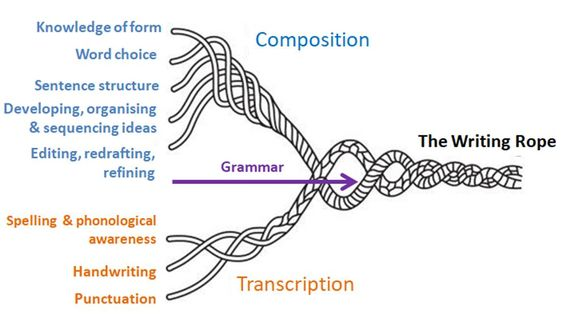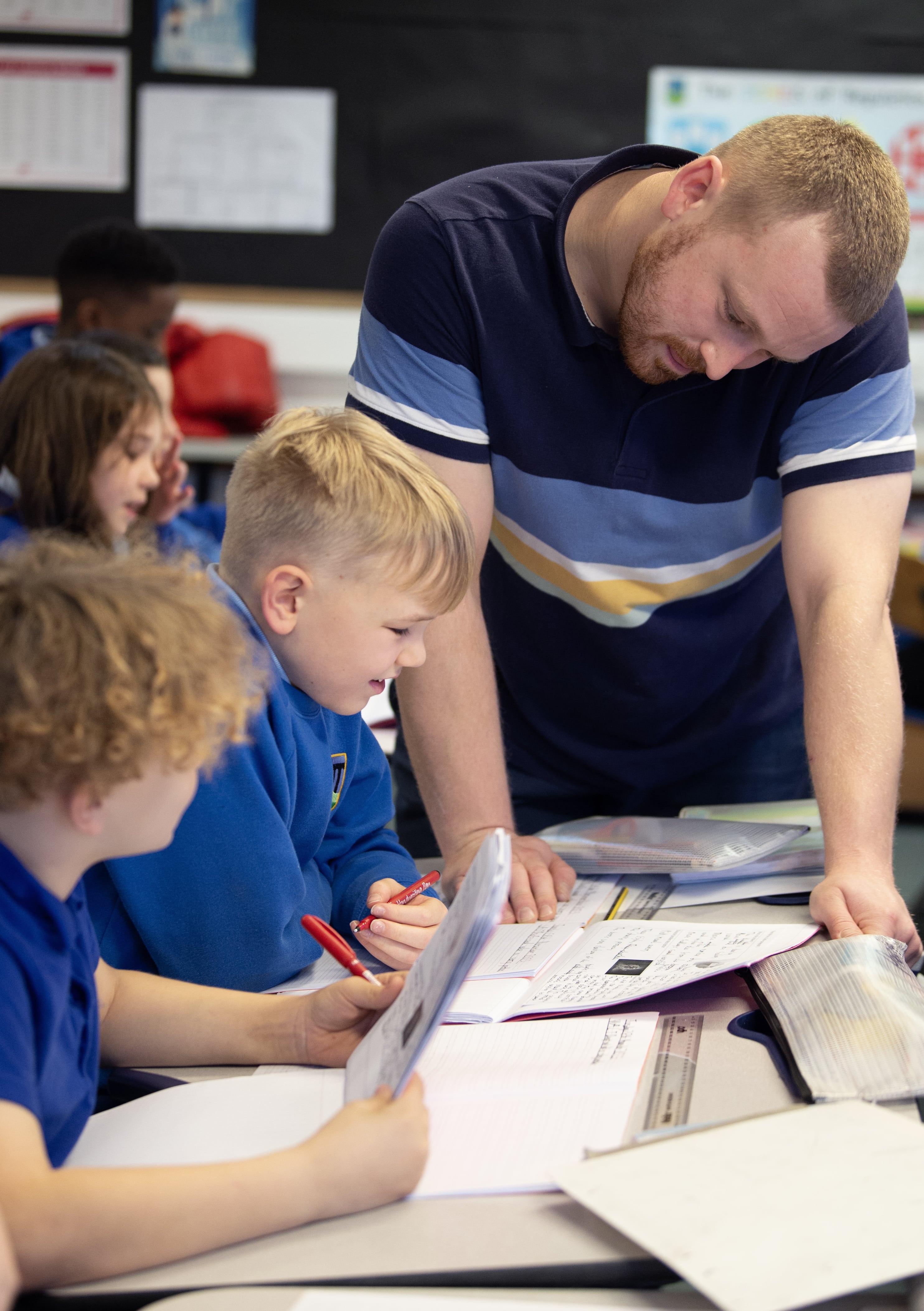
Writing
Intent
We aim to develop children as confident, enthusiastic and skilled writers able to write and express themselves effectively with assured and conscious control for a range of purposes and audiences.
Implementation

We teach writing through a focus on the key areas of transcription, and composition with a core thread of grammar running throughout. In the early stages, will develop transcriptional skills through basic mark-making, developing gross and fine motor skills and posture. Compositional skills will be developed initially through spoken language, listening and responding to adults as they provide models by reading and reciting poems, rhymes and stories with them. As children progress through school into KS1 and KS2 there will be a stronger focus on composition as they begin to master the transcriptional skills of spelling and handwriting through our systematic synthetic phonics programme and handwriting scheme.
Pupils will develop and embed a secure knowledge of grammar throughout the key stage, mastering the key national curriculum objectives for each year group and consolidating their learning through planned retrieval practice.
EYFS
Writing in early years
Learning to write is a complex process that involves learning many skills. We build children’s vocabulary and develop their fine motor coordination. Children begin to understand that writing has meaning and that the words they write can be read back again. This understanding comes from seeing adults in EYFS using writing for a purpose and modelling the use of written language in a range of contexts, such as shopping lists, invitations, postcards, text messages, emails, greetings cards, storytelling and so on. The children start by mark making and emergent writing leading to phonics sessions and learning to form letters. We follow the children’s interests using their ‘selfie home learning’ as prompts for their writing, finding relevant opportunities in children’s self-initiated play to model, and encourage writing for a purpose.
KS1
Transcription
As children move through KS1, they will develop transcriptional skills as part of our systematic synthetic phonics (SSP) programme. Spelling is developed through Read Write Inc phonics to support children in learning how to spell most words correctly and make phonetically plausible attempts at words they have not yet learnt. This daily programme will also help them to develop accurate letter formation and good handwriting skills forming individual letters in the correct direction and of the correct size relative to one another.
Once children have completed the RWI phonics programme, they will move on to the Read Write Inc. Spelling programme. Handwriting will be developed further through our handwriting scheme which will be continued into KS2.
Composition
Throughout KS1, children will develop oral compositional skills through explicit teaching of vocabulary and basic sentence structures. Teachers will provide models to help children to speak audibly and fluently with an increasing command of Standard English. During RWI sessions, children will hold and repeat a given sentence using known graphemes and phonemes that they will then write down. Short phrases and sentences will be dictated during English lessons to support children with their composition initially until they are ready to compose their own sentences based on familiar stories and real events. These familiar stories will be used as a stimulus for further writing composition allowing children to adapt characters and events and eventually beginning to create their own innovations.
KS2
Transcription
Spelling: Once children have completed the RWI phonics programme and have met the English National Curriculum expectations for reading in Year 2 they will move on to the Read Write Inc. Spelling programme.
This includes all of the spelling requirements of the English National Curriculum Years 2 to 6 and children are encouraged and taught to independently apply their learning from these lessons to their writing.
For those children who have fallen behind, we use Read Write Inc. Fresh Start as an intervention to help them close the gap between themselves and their peers. Some children will still need some individual support and we provide this through 1:1 intervention from teaching assistants during writing lessons.
Handwriting is taught through the Achieving Excellence in Handwriting resources from Martin Harvey and pupils are provided with lined books for all English lessons to help them write legibly in joined handwriting.
Composition
Lessons are planned and structured across each year group to use a wide range of carefully selected texts as stimuli and models for writing. These texts provide models for particular purposes and audiences and, along with the core texts from the reading curriculum, also help our children to develop and consolidate their knowledge of new vocabulary which they use and apply in their own writing in different contexts. This reading is the initial stage of our writing sequence which follows a process of planning, drafting, editing and publishing as its main components. Each stage of this sequence is carefully planned and modelled by teachers with scaffolds and supports provided for those who need them so that children can work towards mastering each of these areas more independently.
Grammar and punctuation are taught in the context of the reading and writing tasks for each unit of work, with some discrete instruction included as and when necessary. Our own models and scaffolds for core areas of punctuation and grammar are used across the school to ensure the use of consistent language as children move from one year to another.
Impact
Regular 6 weekly assessments of phonics help us to monitor the progress of our children following the RWI schemes. If children are falling behind, they are given extra 1:1 support to help them close the gap on their peers. Similarly, regular spelling tests inform us of the progress of KS2 children in spelling. Writing activities which are part of the planning and drafting process are monitored by class teachers and feedback is provided as necessary. This monitoring and assessment for learning informs direct intervention within lessons and the planning of those to follow. Mid-term and end of year assessment judgements of writing are made using assessment grids developed by regional moderators from our school improvement service. These judgements are moderated with year group partners and confirmed by subject leaders.
As part of our monitoring process, our English leaders work with year groups each half term, with a focus on either reading or writing. Initial goals are discussed in a group coaching session and support and interventions are provided throughout the process. At the end of the half term the impact of this process is assessed through ‘Book Study’, an evidence-informed process to help us judge the impact of our curriculum in helping children to know and remember more.
Pupil book study is used as a process to gain an insight of what children have learned and remembered in both writing and reading lessons and to quality assure the taught curriculum. This involves an initial look through books followed by a focused discussion with groups of pupils to investigate specific areas in more detail.


